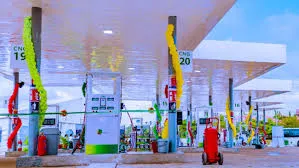
Compressed Natural Gas: A Sustainable Future for Nigeria
President Bola Tinubu has directed that filling stations across Nigeria be converted to provide Compressed Natural Gas (CNG) as part of his administration’s plan to transition the country towards cleaner and more affordable energy.
This was confirmed by the Minister of State for Petroleum Resources, Heineken Lokpobiri.
The move is aimed at reducing Nigeria’s reliance on petrol and helping to cushion the effects of fuel subsidy removal.
CNG, which is cheaper and environmentally friendly, is seen as a viable alternative to petrol.
The government believes that expanding CNG access will help bring down transportation costs and make energy more affordable for Nigerians.
Under this initiative, filling stations will either be retrofitted or newly constructed to dispense CNG, with a focus on urban centers and major transportation hubs.
This policy aligns with the government’s broader energy reform agenda, which seeks to diversify the country’s energy mix and promote sustainability.
However, the conversion of filling stations will require significant investment in infrastructure, and stakeholders are watching to see how quickly the government can implement this change.
This push for CNG is also expected to create jobs and stimulate growth in the energy sector.

Leave a Reply